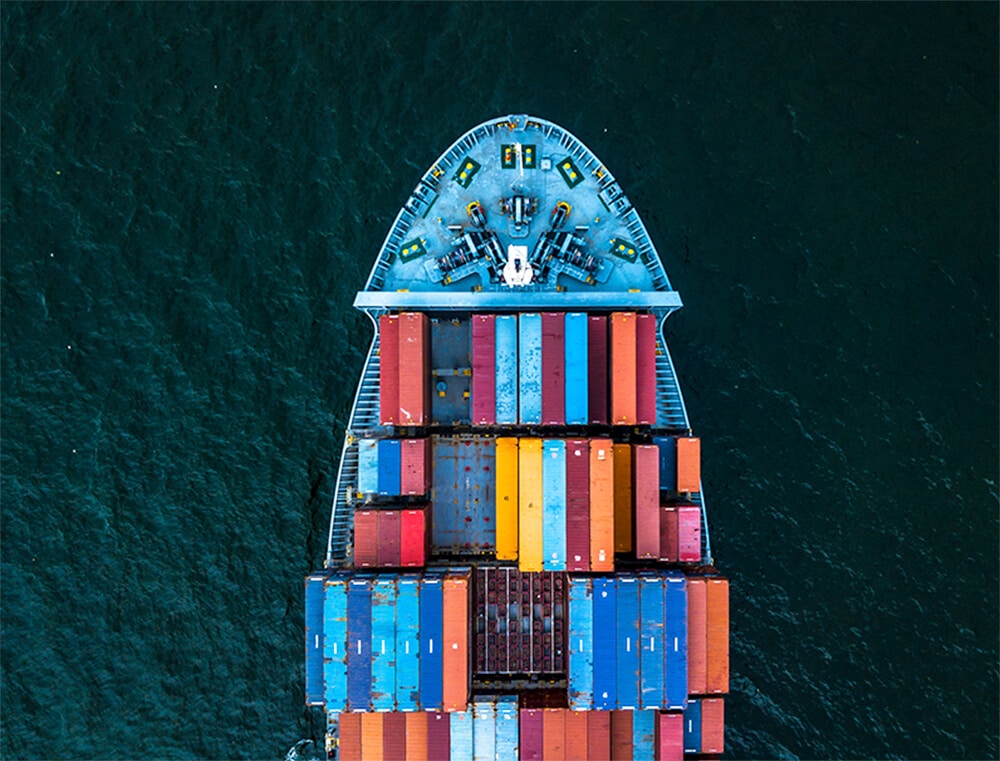
What Is Delivered Duty Unpaid (DDU)?
If you ship internationally frequently, you’ve probably come across numerous terms that may sound ambiguous. And while some of these terms aren’t worth giving a more thorough inspection, there are several that one must educate themselves on what they mean. One of them is DDU, otherwise known as Delivered Duty Unpaid.
What hides under this inconspicuous term? Why is it crucial for a person who ships internationally, be it a seller or buyer, to know about DDU? We’ll tackle these questions and more in the following article.
Delivered Duty Unpaid Shipping Explained
Delivered Duty Unpaid (DDU) is an international trade term that divides shipping responsibilities between a buyer and seller. In this particular case, the seller is responsible for safe and secure package delivery to a given destination. Once the goods are delivered, all costs associated with imports fall to the buyer.
In essence, this means that the seller is responsible for:
- Safe and secure delivery to a named destination;
- Paying all expenses involved in transporting the goods;
- Assuming all risks during transportation of the goods.
Once the goods arrive at the destination country, all risks are then transferred to the buyer, meaning that they’re responsible for:
- Paying all import and customs duties;
- Covering any costs involved in further transportation of the goods.
Summing up, the buyer takes care of the package until it gets delivered to the destination country. Once it arrives, the responsibility for the further shipping process falls to the buyer. The table below explains these responsibilities in more detail:
Seller and Buyer Obligations Under DDU
| DDU Shipping Obligations for Sellers | DDU Shipping Obligations for Buyers |
| 1. Shipping the items to the buyer. The shipper is obligated to deliver the goods with an invoice (or other documents) to the buyer. | 1. Paying for the goods. The buyer pays for the items delivered. |
| 2. Licenses and formalities. The seller is responsible for managing any permissions and formalities required to deliver the goods to the named destination. | 2. Licenses and formalities. The buyer has to arrange and pay for the relevant documents once the shipment has arrived in their country. |
| 3. Shipping. The seller is responsible for shipping the goods to the named destination. The shipper also has to ensure the items arrive on time and are undamaged. | 3. Shipping. Once the items arrive in their country, the further part of the shipping process becomes the buyer’s responsibility, including paying for the expenses related to importing and transporting the goods. |
| 4. Delivery. The vendor is responsible for ensuring the goods arrive at the agreed-upon destination. | 4. Accepting delivery. The buyer must accept the parcel and pay all the required costs and responsibilities. |
| 5. Transfer of risk. Once the goods have arrived at the destination country, the seller is no longer responsible for the further shipping process. | 5. Transfer of risk. Once the buyer accepts the goods, they become responsible for the further shipping process and paying the necessary expenses. |
| 6. Costs. The seller has to cover the costs of: Delivery to the destination Labour, loading, and transportation Export duties | 6. Costs. The buyer has to cover the costs of: Taxes and import tariffs Unloading fees Customs formalities Further delivery fees |
| 7. Notice to the buyer. The seller needs to provide the buyer with the correct documentation. | 7. Proof and notice. The buyer must accept the delivery documentation and schedule when to receive it. |
Pros and Cons of DDU Shipping
DDU shipping offers several advantages to buyers and sellers alike. Let’s take a look at them, both from the seller’s and buyer’s perspective:
- The buyer. The primary advantage of Delivered Duty Unpaid for the buyer is that it provides them with much more control over the shipment and procedures involved. Since the buyer is naturally more accustomed to the international shipping regulations in their country, it allows them to control costs and track shipments more efficiently.
- The seller. Looking at DDU shipping from the seller’s perspective, it involves a lower risk. The seller is responsible for getting the goods delivered to the named destination country. The buyer takes it from there, meaning the seller doesn’t need to worry about the country’s customs they may not be familiar with.
As for the potential disadvantages of DDU shipping, there’s one main issue both sellers and buyers may encounter – surprise duties and tax charges once the package arrives. This, of course, mainly hits the buyer, who has to pay additional costs. However, it can also have severe consequences for the seller when a customer decides not to pay additional charges for the goods to be delivered.
DDU Shipping in Package Forwarding
Suppose you want to order goods at an online retailer that, for some reason, doesn’t ship outside the UK. In this case, you can take advantage of the package forwarding services offered at MyUKMailbox.
DDU shipping process with package forwarding looks as follows:
- The UK retailer is responsible for all delivery costs and risks as stated in the DDU agreement. However, in this case, the seller sends the parcel to one of the MyUKMailbox UK addresses and not the buyer’s original address.
- Once the parcel is delivered to the UK address, the responsibilities for the parcel should originally fall to the buyer. These include the further costs of delivery, imports, and customs duties.
- MyUKMailbox will take care of all the fees and paperwork involved in the further shipping process. These fees will then later be included in the overall cost of the forwarding service.
- We will forward the parcel to your home address. All that’s left for you to do is meet the costs of import, VAT, etc.
In essence, when DDU ships with MyUKMailbox, it’s us who are responsible for the second part of the shipping process, not the buyer. Your only responsibility is to meet the customs requirements, fees, and taxes.
Ship from the UK With MyUKMailbox
Hopefully, after reading this guide, you have a better understanding of what DDU is and why it’s worth knowing a thing or two about it when shipping internationally. But that’s just one side of the coin. Before making a decision on whether to opt for DDU or DDP shipping, your focus should be on ensuring your international shipment is cost-effective and reliable. MyUKMailbox can help with that.
We provide international shipping from vendors who don’t deliver outside the UK. With our parcel forwarding service, you’ll be able to receive the items you want, no matter where you live. Sign up for MyUKMailbox for free today, and take advantage of the reliable and cost-effective UK parcel forwarding service!
FAQs
What is DAP and is it different from DDU?
DAP, which translates to Delivery-at-place, was introduced in 2010 to replace the old term DDU. In other words, they’re two terms describing the same process.
Who is responsible for what in Delivered Duty Unpaid shipping?
In essence, the seller is responsible for delivering the goods to the agreed-upon destination country, as well as all the costs involved in loading, labor, and transportation. The buyer, on the other hand, takes responsibility for the parcel from the moment it is delivered to their country. It means paying all the required customs duties, import fees, and taxes, as well as transporting the goods to the final destination.


